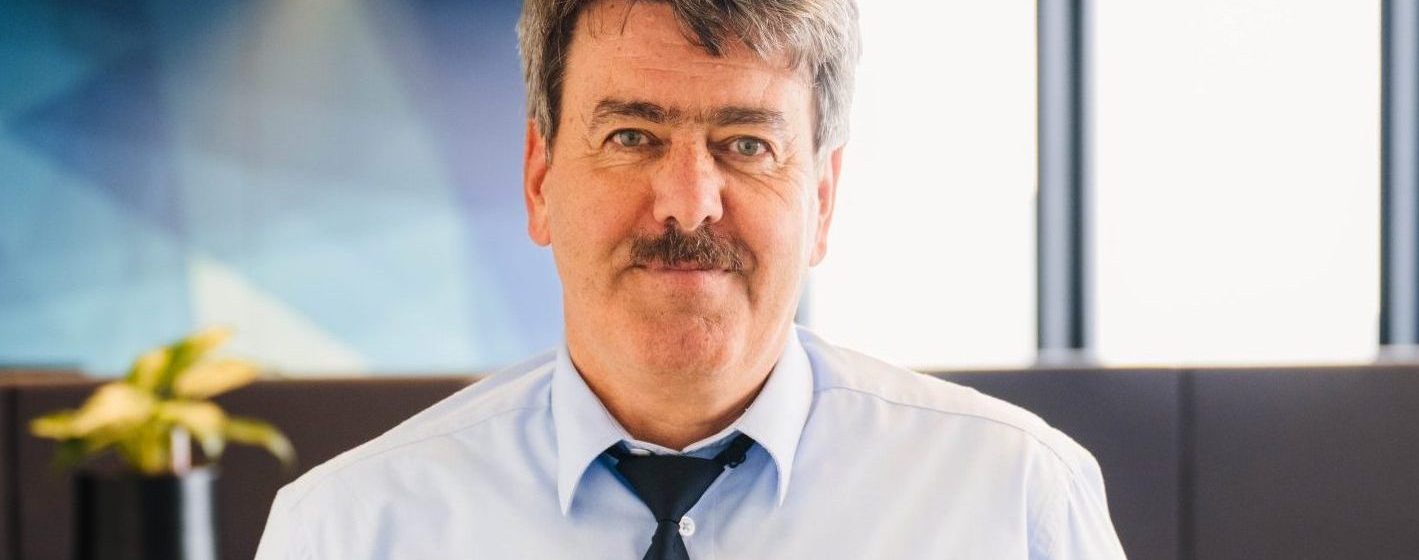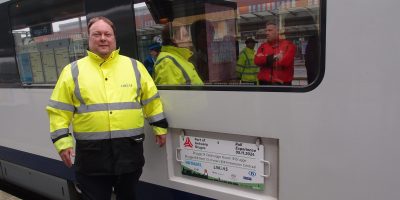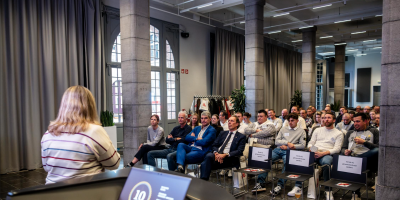
Rudi Lodewijks has been temporarily appointed regional centre director at Antwerp Customs. He succeeds Sabine De Schryver who has been retired since 1 May. “In the meantime, I have been working at Customs for 40 years and have not regretted it for a single day,” he said.
De Schryver retired at the beginning of May (see Flowsmagazine on page 54). Her successor is Rudi Lodewijks, who has a long track record at customs. He has worked there since 1 September 1983. “Back then, I took part in the biggest exam ever held for all ministries. There were 24,000 participants. When positions became available, I had a choice between customs, tax and VAT, but I deliberately chose customs. The tasks are very diverse, so there is a lot of variety. Meanwhile, I have been working in customs for forty years and I have never regretted it.”
Lodewijks started at Customs in the petroleum sector in Antwerp. Through exams, he climbed to verifier and receiver at the customs office in Lommel. In 2004, he moved to Hasselt, where he became team chief and department head of ‘Operations 2nd line’. He has held the position of Hasselt Customs’ regional centre director since 2020 and was appointed in 2021.
100% scanning
As regional centre director of Antwerp Customs, he wants to focus mainly on 100% scanning. “We have been given a nice budget to take on the war on drugs, including the purchase of mobile scanners,” Lodewijks says. “The big challenge will be to get that into our processes and the MyCustoms story.”
Over the past few years, Lodewijks has been involved in several automation projects, including that MyCustoms project, which merges all applications so first-line staff can perform checks more smoothly. “We want to have the workflow of 100% scanning – our main focus – ready in MyCustoms by the end of December this year. For an IT project, that’s short notice. Nothing can go wrong or we have a problem.”
Staff shortage
It’s not just about scanning, but also aftercare and reporting afterwards, he adds. “If something is identified, there is a follow-up procedure that we want to automate as much as possible. But also in the notification to business, we want to eliminate e-mail traffic and work b2b. All working methods should become uniform as much as possible.”
We need to make it clear to our staff that they will be better off themselves
For the rest, Lodewijks wants to continue along the lines De Schryver set out earlier. “She was a competent predecessor who has earned her stripes,” he said. One of the challenges will be staff shortages. “We want to combine many customs tasks with the automation of our processes. That will require change management and we can expect resistance there. Change brings resistance from some people, but we have to make it clear to our staff that they will be better off themselves.”
Home renovation
Lodewijks’ position is temporary, until a definitive successor is chosen. “In the meantime, a procedure is under way to fill that vacant position. I have been informed that there are three candidates. Hopefully, one of the three will make it to the finish line so that I can hand over the position to that candidate.”
Meanwhile, these are busy times for Lodewijks. “Especially the combination of the new job and updating my previous knowledge of Antwerp is a challenge. A lot has changed in the meantime, just think of the container terminals, the move from right to left bank and the various security issues surrounding drugs. In addition, I put a lot of time into the programme meetings.”
To maintain work-life balance, he helps his two sons who are renovating their homes. “That’s where I get my energy from, even if it sometimes takes energy,” he laughs.




